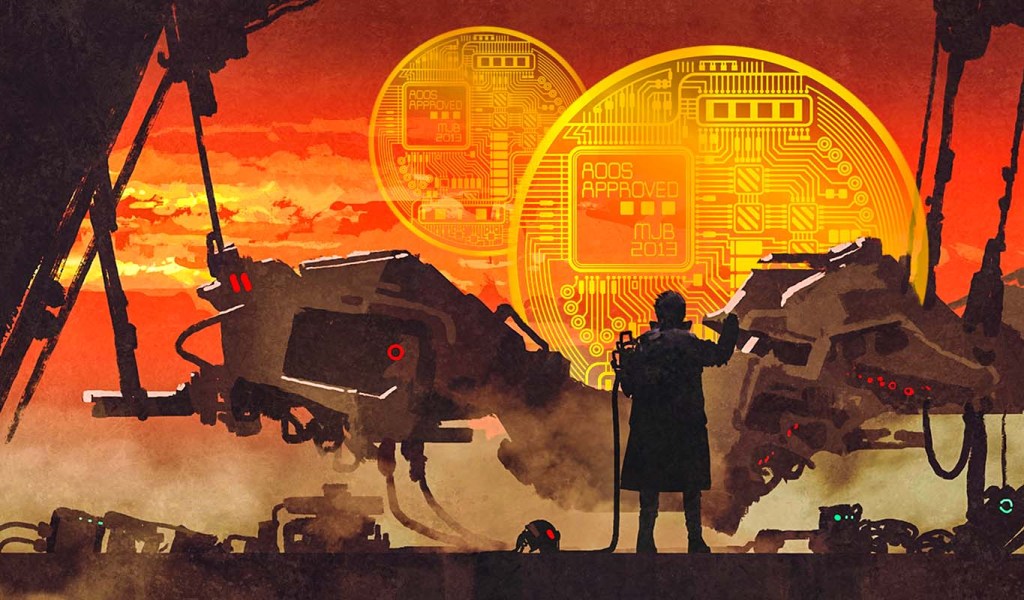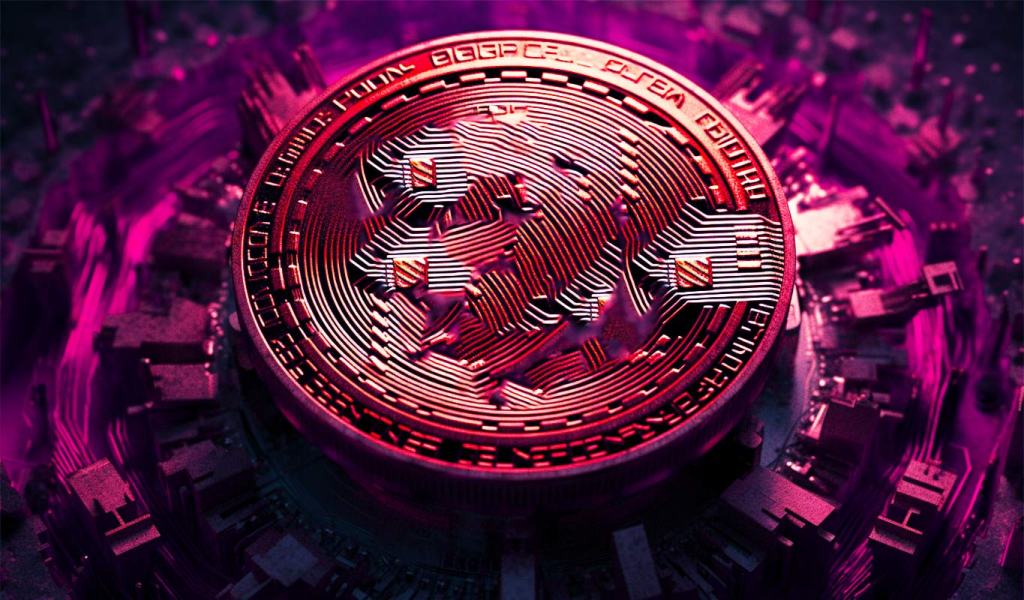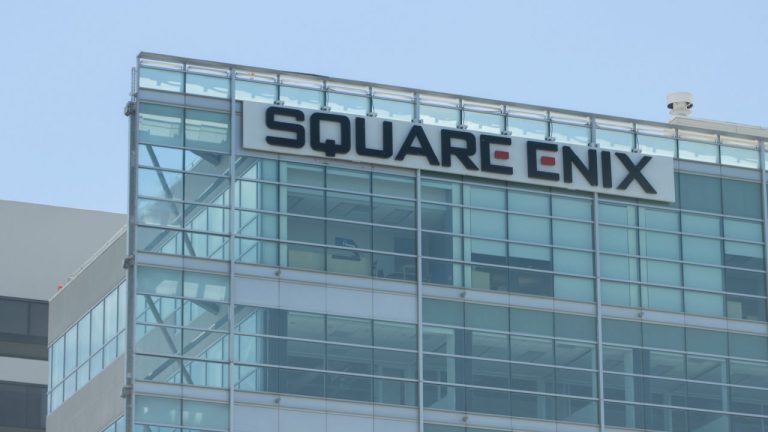
A widely followed crypto trader is turning bullish on a handful of altcoins as digital assets attempt to find a bottom. The pseudonymous trader and analyst known as Altcoin Sherpa says he’s bullish on KAITO, an artificial intelligence (AI)-powered Web3 information platform. He tells his 243,000 followers on the social media platform X that he’s […]
The post Trader Predicts Rallies for Two Artificial Intelligence Altcoins, Names Three Key Coins for Mid-Term Holdings appeared first on The Daily Hodl.

The brand-new native token of a layer-1 blockchain focused on intellectual property (IP) has skyrocketed by 164% in price in its first week of existence. Story (IP) launched on February 13th at the listing price of $2.26 and is now trading at $5.98 at time of writing. It’s already the 71st-largest crypto asset by market […]
The post New IP-Focused Altcoin Surges 164% in First Week Amid Launch of Research Collaboration With Stanford University appeared first on The Daily Hodl.

Coinbase has rolled out trading support for the brand-new native token of a layer-1 blockchain focused on intellectual property (IP). The scalable intellectual property solution Story launched its public mainnet on Thursday and aims to serve as a blockchain where rights holders can upload IP, set the terms of use and monetize it throughout the […]
The post Top US Crypto Exchange Coinbase Launches Support for New Asset Tied to Intellectual Property-Focused Blockchain appeared first on The Daily Hodl.

Traverse founder Amos Thomas believes stories are the foundation of everything, and that humanity must do everything in its power to protect them.
Human stories and knowledge are the lifeblood of civilization and must protected at all costs in the age of artificial intelligence, according to Tracverse founder Amos Thomas.
Since their mainstream debut roughly two years ago, generative artificial intelligence solutions such as large language models (LLMs) have come under fierce criticism for reportedly sucking up the knowledge and creative outputs of humans, without credit or compensation, to train their algorithms.
The solution to this major issue lies in minting humanity’s stories on the blockchain, says Thomas.

OpenAI was originally formed as a non-profit entity to ensure it was free to achieve its stated goal, it formed a for-profit company back in 2019.
Billionaire Elon Musk has queried whether it's legal for OpenAI — the firm behind ChatGPT — to become a for-profit business after he invested approximately $50 million into it.
On May 16, Musk spoke with CNBC during Tesla’s annual shareholder meeting and claimed he “came up with the name” OpenAI, intending for the company to be an open-source alternative to DeepMind after Google purchased the company in 2014.
Musk likened OpenAI’s non-profit to for-profit transition to a “save the Amazon” organization becoming a “lumber company” which logged and sold trees from the rainforest, adding:
“Is that legal? That doesn’t seem legal. In general, if it is legal to start a company as a non-profit and then take the IP and transfer it to a for-profit that then makes tons of money [...] shouldn't that be the default?”
OpenAI says it began as a non-profit company so that it was “unconstrained by a need to generate financial return” and could focus on its goal of advancing “digital intelligence in the way that is most likely to benefit humanity as a whole.”
But in 2019, OpenAI announced it would create a new company called OpenAI LP, which it called a “hybrid of a for-profit and nonprofit,” or “capped-profit” company, which is supposedly still governed by the non-profit entity.
OpenAI was created as an open source (which is why I named it “Open” AI), non-profit company to serve as a counterweight to Google, but now it has become a closed source, maximum-profit company effectively controlled by Microsoft.
— Elon Musk (@elonmusk) February 17, 2023
Not what I intended at all.
OpenAI claims this allowed it to attract more capital and scale faster, laying the groundwork for Microsoft’s multiyear, multibillion-dollar investment and other investments such as the $100 million it is reportedly seeking to create a new cryptocurrency called Worldcoin.
Related: OpenAI CEO Sam Altman testifies in ‘historic’ Senate hearing on AI safety
OpenAI might again be releasing an open-source AI model, which it hasn't done since it turned for-profit in 2019.
It seems likely the company's open-source AI model will not be as competitive as the paid version available to users for $20 per month, given this is a substantial source of revenue for the firm.
AI Eye: Make 500% from ChatGPT stock tips? Bard leans left, $100M AI memecoin
 Square Enix, the Japanese gaming giant, is preparing to announce more blockchain-based titles in 2023. As part of a now traditional new year’s letter issued by Yosuke Matsuda, CEO of the company, the executive announced some of the moves Square Enix will make regarding blockchain tech, and also pondered several situations which surrounded blockchain in […]
Square Enix, the Japanese gaming giant, is preparing to announce more blockchain-based titles in 2023. As part of a now traditional new year’s letter issued by Yosuke Matsuda, CEO of the company, the executive announced some of the moves Square Enix will make regarding blockchain tech, and also pondered several situations which surrounded blockchain in […]
The popular browser wallet has over 21 million monthly active users.
According to a revised privacy policy agreement published by ConsenSys on Nov. 23, MetaMask will begin collecting users’ IP addresses and Ethereum wallet addresses during on-chain transactions.
However, ConsenSys, the wallet’s creator, explains that the collection of users’ data will only apply if they use MetaMask’s default Remote Procedure Call (RPC) application, Infura. Individuals using their own Ethereum node or a third-party RPC provider with MetaMask are therefore not subject to the newly updated ConsenSys privacy policy. Instead, the terms of the other RPC provider apply.
According to ConsenSys, information gathered in this manner may be disclosed to affiliates, during business deals, or to comply with Know Your Customer and Anti-Money Laundering requirements dictated by law enforcement. MetaMask is currently one of the most popular self-custody wallets on the market with more than 21 million monthly active users.
The reaction within the crypto community has been mostly negative. For example, Adam Cochran, partner at Cinneamhain Ventures, stated:
“There is nothing more important than consumer privacy, especially when it comes to your financial data — you have a right to be anonymous. Metamask has provided a great free service for a long time, but their decision to log IPs and tie it to transactions is unacceptable.”
At the same time, Hayden Adams, inventor of the Uniswap protocol, responded to inquiries by outlining that the decentralized exchange neither tracks IPs nor allows third-party tools on the platform to do so. ConsenSys has joined the ranks of notable Web3 companies, such as Coinbase, that adopted IP collection partly due to increasingly stringent regulations.
 The non-fungible token (NFT) and blockchain firm Yuga Labs has announced a community council will be representatives of the Bored Ape Yacht Club (BAYC) and Mutant Ape Yacht Club (MAYC) NFT collections. Yuga Labs has chosen seven community members with “a proven track record” to represent the NFT club at large. Yuga Labs Names Seven […]
The non-fungible token (NFT) and blockchain firm Yuga Labs has announced a community council will be representatives of the Bored Ape Yacht Club (BAYC) and Mutant Ape Yacht Club (MAYC) NFT collections. Yuga Labs has chosen seven community members with “a proven track record” to represent the NFT club at large. Yuga Labs Names Seven […] Yuga Labs, the company behind the Bored Ape Yacht Club (BAYC) non-fungible token (NFT) collection, has officially released the intellectual property (IP) rights tied to the Cryptopunks and Meebits NFTs. The company acquired the IP rights to the NFT collections in mid-March 2022, and owners can use their NFTs for commercial or personal purposes. Yuga […]
Yuga Labs, the company behind the Bored Ape Yacht Club (BAYC) non-fungible token (NFT) collection, has officially released the intellectual property (IP) rights tied to the Cryptopunks and Meebits NFTs. The company acquired the IP rights to the NFT collections in mid-March 2022, and owners can use their NFTs for commercial or personal purposes. Yuga […]
When you buy a nonfungible token, do you automatically get intellectual property rights? Well… it's complicated.
InvArch says that its infrastructure can be used to speedily create new decentralized autonomous organizations.
This could make it easier for nonprofits to fund intellectual property development — and organizations could generate cashflow without signing over their IP rights. It's hoped roadblocks to innovation could be torn down — with a new "development highway" left in its place.
InvArch's infrastructure could also offer greater protections to those who are building ambitiously on virtual plots of land in the metaverse — and unlock whole new business opportunities over in the world of DeFi.
The project won the 43rd Kusama parachain auction — and at the end of June, it unveiled technology that will make everything from music to code "all but impossible to steal." What's more, this will strike at the heart of centralization in the world of IP, not least because seeking protection through InvArch is vastly cheaper than the status quo.
Disclaimer. Cointelegraph does not endorse any content or product on this page. While we aim at providing you with all important information that we could obtain, readers should do their own research before taking any actions related to the company and carry full responsibility for their decisions, nor can this article be considered as investment advice.
Yes — business deals could be brought into the 21st century with the help of blockchain.
InvArch's goal is to ensure that those who hold the most desirable NFTs — including CryptoPunks, Bored Apes and Meebits, can establish on-chain agreements that extend to use of their nonfungible tokens in a third-party product.
Setting out its vision in a recent blog post, the project added: "In the end, you have a marketplace where communities can buy swag and products relevant to their interests — and a market where artists and NFT copyright owners can establish lucrative income streams from their NFTs and increase the raw value of their digital assets."
The 21st century has turned into an IP war zone and an innovation graveyard — but things are beginning to change.
New and enhanced NFT classes have the potential to certify the authenticity of nonfungible assets, protect their uniqueness, and streamline management rights.
This approach is being championed by InvArch — an IP rights blockchain that is scalable, interoperable and has ambitions to be integrated throughout the Web3 world. An Invention, Involvement, Inventory and Investment protocol (known as INV4) delivers piracy-proof files as well as on-chain copyright and licensing.
Setting out one potential use case for how its approach could transform the creative sector, the project paints a picture where decentralized music studios and record labels can flourish — with individual artists contributing distinctive elements. They could then be brought together to form a song with a plethora of beats and rifts — with each contributor retaining their IP, jointly owning the rights to the track, and sharing a piece of the royalties.
Some of the biggest NFT collections out there right now — Bored Ape Yacht Club among them — have given full intellectual property rights to users.
This is a significant (and you could argue a very generous) development. It effectively means that those who own Bored Ape NFTs have the potential to profit from them. We've seen Eminem and Snoop Dogg team up for a new music video where they transform into their characters. Meanwhile, sites have emerged where collectors can effectively hire out their ape's NFT to brands.
As we alluded to earlier, the actor Seth Green made a splash when he unveiled plans to create a TV show themed around his Bored Ape NFT, which he affectionately calls Fred, called White Horse Tavern. Green's beloved collectible ended up being stolen in a phishing attack, and he ended up paying over the odds to get it back.
BAYC's license states those who purchase NFTs "own the underlying Bored Ape, the Art, completely" — but doesn't actually mention what happens in cases of theft. Many experts believed that Green would have been on firm legal ground if he released the TV show without the NFT, but there are no guarantees.
The short answer to this is no. It's important to read the small print to find out exactly what you're getting.
Let's run through some quick examples. Jack Dorsey sold off his first tweet in NFT form for a whopping $2.9 million back in March 2021. While there's little doubt this is a historic piece of content, crypto entrepreneur Sina Estavi doesn't own the IP to this tweet. All copyright still rests with Dorsey.
The New York Times pulled off a tongue-in-cheek stunt when it published an article about crypto collectibles — and then gave readers the chance to own a tokenized version of the story. It ended up selling for a whopping 350 ETH — worth $560,000 at the time, and about $600,000 as of the start of August 2022. Although this NFT did come with some perks (the buyer was given the chance to be named and photographed in a subsequent piece,) it didn't include the copyright to the article… or any reproduction or syndication rights.
Potential pitfalls don't end here, either. MetaBirkins have become especially popular during the NFT boom — a digital remake of Hermes' famous bags. But digital artist Mason Rothschild ended up in hot water with the designer brand, which took legal action after claiming it could cause confusion in the eyes of consumers.
In its simplest form, intellectual property relates to something you create with your mind — such as artwork, literature and inventions.
These protections were relatively easy to enforce in the analog era, but our digital world — where copying and pasting runs abound as millions of people create their own content — makes things especially challenging.
Nonfungible tokens are a thrilling development that have the power to modernize everything from baseball cards to music albums, from movie merchandise to stunning art. But, as with any new technology, there are issues that need to be overcome.
The industry's still getting to grips with the rights that are afforded to the owners of an NFT, and there are other threats that need to be addressed. If a nonfungible token is stolen by a malicious actor, does the victim still enjoy IP rights? And how can we counter the risk of copycat NFTs being minted on a rival blockchain?